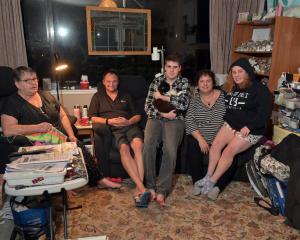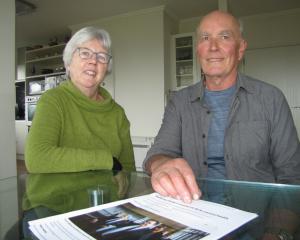
The Government has taken a wellbeing approach to planning its Budget which, in broad health terms, is very positive.
Health and wellbeing are outcomes which pertain to how we live, the support mechanisms in place and how government and other agencies in receipt of public funding function.
Governments are traditionally siloed into different departments and services.
The Wellbeing Budget seeks to better integrate the silos and focus them on collaborating to improve outcomes.
The Labour-led government of the 2000s sought a similar approach with its Managing for Outcomes programme.
This Budget is therefore not a new innovation in public management but it is nonetheless important for putting wellbeing at the centre.
The announcements in mental health are very important and no surprise.
Support is needed to implement the recent Mental Health Inquiry recommendations and drive crucial changes in service delivery and patient support.
Allocated across 20 DHB regions the funds will dissipate; they will help with suicide prevention, addictions treatment and important system changes, but more will be needed.
The links with schools, housing, corrections, child and family, and Maori and Pacific services are important here too.
READ MORE:
- Future looking bright for Hillside
- Long-term approach restrains promises
- Mixed bag; wait for mental health details
- 'Refreshing Budget' pleases pensioners
- 'The start of a programme of change'
- Good news and opportunities for Otago business
- Net debt situation concerns economists
Co-ordination across these areas - notoriously difficult - will be key.
District health boards will welcome more funds for capital development but more is needed, including for ensuring services meet community demand and are able to evolve to provide for increasing numbers of patients with multiple chronic illnesses better treated in community settings.

This Budget, just like KiwiBuild, has failed to deliver.
The reason I was asked to write this article though was for the perspective of youth: any promises made for youth were extremely vague, essentially giving the Government a "get-out-of-jail-free card'', leaving it with no obligation to youth.
In terms of positives, I see great progress in reduction of child poverty, even if there is a slight misinterpretation of a few statistics.
There is a marked ambition for the mitigation of climate change, including provision for farmers to receive funding to reduce their emissions, along with an investment in rail that, while a bit random, serves a purpose in moving to a low-carbon future.
I like the road this Budget sets New Zealand on, leading into a new decade next year.
I do, however, take issue with how vague it is, and the continuation of the trend of no concrete investments in youth.
I got the feeling that the Government is trying to push problems aside, and that it is all talk from this Budget.
But what would I know? I am just a youth, and it is not like we'll be dealing with what is [currently] being brushed off by the Government in less than 10 years.
The sentiment is great, but the action is not.

Good decisions require the right information and a decision procedure that is fit for purpose. We all know how easy it is to have a holistic goal (say, improving our personal health) that we fail to reach despite our best intentions.
Conventional budgeting is like conventional weight loss: we focus for a short time on isolated efforts such as following a radical diet; we fail to make the many changes that taken together add up to sustainable weight loss; and after what seems to us like years of sacrifice and effort, we wonder how we ended up heavier than ever.
As a country we have focused on the short term and the GDP, and we wonder how we ended up with outcomes that don’t match our self-image as an advanced, clean green, humane group of people thriving together. This government’s move to longer term budgets oriented toward concrete goals is a good first step towards allowing us to make better decisions.
Ministers making funding cases this year had to demonstrate their contributions to wellbeing, rather than simply making use of what Grant Robertson has called a “narrow set of economic indicators.”
Beginning this year and with the support of a new suite of "Indicators Aotearoa" from next year, we will measure our progress against our own past and internationally on a wide range of aspects of wellbeing. With concrete measures, inter-agency cooperation, and a long-term outlook, the new budget should improve our decisions so that we can reach common goals.

The term "wellbeing'' will mean different things to different people.
I wonder if this Budget is a modern-day take on Maslow's hierarchy of needs, proposed back in 1943.
At the very least, the basic needs identified by Maslow of shelter, food, water and clothing, followed by safety and security, are fundamental to wellbeing for every individual.
We know that there are too many in New Zealand who struggle to have their basic needs met.
This is evidenced by the number of people Family Works assists with food parcels and help to find affordable housing.
At the heart of this is inadequate income.
The Budget has raised the threshold of abatement for beneficiaries to earn income from $80 a week to $150.
This is certainly an improvement but in real terms, it is not as generous as when the $80 was set in 1996, given inflation and the rise of the minimum wage.
It needs to be at least $250 a week to return to relative levels of 1996 to make a meaningful difference and encourage those on a benefit into work.
The indexing of main benefits to average wage increases is long overdue as current benefit levels are estimated to be a third less now in relative terms than that of the Muldoon era.
If, as reported, the impact of indexing increases benefits by just $17 a week, it fails to address the poverty gap.
The goal of wellbeing remains out of reach for many who feel trapped in a cycle of debt and desperation.
Comments
Interesting list of 'experts' — not a single one has any expertise at all in economics. And it shows.
Tax increases for all to pay for the lollies of some....
The budget is a start in the right direction. It's about time a New Zealand Government focused on the well being of New Zealanders. Rather than the GDP,or economic related factors, that only really valued those in business or the rich.
Our statistics tell a real story. High suicide rates, homelessness, low and even middle income families struggling to afford the basics. There's been a real lack of funding directed towards the poor or mental health for over a decade.
Good on Labour, for wanting to begin to address the reality of poverty and mental health issues, that are very prominent in this country.












